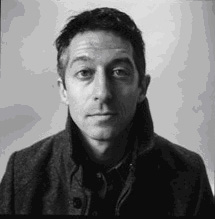By Hayley Baker
The Phi Beta Kappa Society, in conjunction with the American Philosophical Association (APA), awarded the 2014 Lebowitz Prizes to Jonathan Schaffer and Jessica Wilson for Philosophical Achievement and Contribution for their symposium titled “Grounding in Metaphysics.” The symposium will take place this winter, December 27-30, at the APA’s Eastern Division meeting. The Lebowitz Prizes page on the APA’s website explains that each year the symposium program features two lectures on a philosophical issue of current interest, which are chosen to provide contrasting views. The Lebowitz award recognizes the work of celebrated philosophers for their excellence in thought, in addition to awarding an honorarium of $30,000 to each recipient.

Jonathan Schaffer, a professor at Rutgers University, specializes in metaphysics and epistemology. His work focuses on questions of fundamentality. His articles include “Grounding in the Image of Causation,” “Knowledge, Stakes, and Mistakes” (with Wesley Buckwalter), and “The Action of the Whole”; these and other pieces are available to read on his website.

Jessica Wilson is an associate professor at the University of Toronto. Her research interests are in the metaphysics of science and mind. Some of her articles include “No Work for Theory of Grounding,” “Non-Reductive Realization and the Powers-Based Subset Strategy,” and “Determination, Realization and Mental Causation”; these and other publications are available to read on her website.
Metaphysics is a branch of philosophy that considers the nature of being. When asked how he would describe what it means to study metaphysics, Schaffer replied, “What it means to study metaphysics, for me, is to study the deepest questions about the structure of reality.” In response to the same question, Wilson commented, “As I think of it, to study metaphysics is to do metaphysics, and to do metaphysics is to focus on some phenomenon of interest and try to figure out what makes it what it is.” Noting how broad this category is, since after all, anything that is is available for metaphysical investigation, Wilson added that “these investigations are unified, though, by their characteristic philosophical methodology.”
The Lebowitz Prize creates an opportunity for dialog between celebrated scholars. When asked about his work, Schaffer explained his views on metaphysical grounding as part of thinking on fundamentality:
“I try to make sense of the idea that there are things like particles and things like tables, but that the particles are more fundamental than the tables (the tables are made out of the particles). So I try to develop a framework for thinking about certain entities like tables as being dependent on, or grounded in, other entities like particles. I also put forward my own speculative views about what turns out to be most fundamental of all, which I think might be the cosmos taken as a whole.”
Wilson, by contrast, focuses on specific metaphysical relations. Regarding the focus of her work, she said, “A distinctive theme in my approach has been to argue that making sense of non-reductionism requires appeal to specific metaphysical relations—for example, the determinable/determinate relation (the relation holding between colors and their more specific shades), the part-whole relation, and the proper subset relation, among others.”
For philosophy, debate is more important than trying to discover a right and a wrong side. Regarding their upcoming symposium, Wilson commented:
“Few things are more important for the study of metaphysics than to encourage dialog with and between philosophers holding contrasting views on a given topic. One reason this is so valuable is that progress in metaphysics, and in philosophy more generally, requires that we put our theories to the test, and for this purpose it’s great to have an able opponent make salient the advantages of their theory and offer potential problems for your own.”
“It’s refreshing and salutary to engage with philosophers who think about things differently from oneself—and it’s wise, since in my view we are too far from the end of philosophical inquiry to be entirely confident any specific framework assumptions are correct,” Wilson added.
For those interested in contemplating metaphysics, Wilson and Schaffer’s debate at the symposium this December will be a rich discussion. “For me,” Schaffer said, “metaphysics is primarily about what grounds what, and so my debate with Wilson gets to the heart of what metaphysics is about.”
Hayley Baker is a senior at University of California at Berkeley majoring in rhetoric. University of California at Berkeley is home to the Alpha of California Chapter of Phi Beta Kappa.




